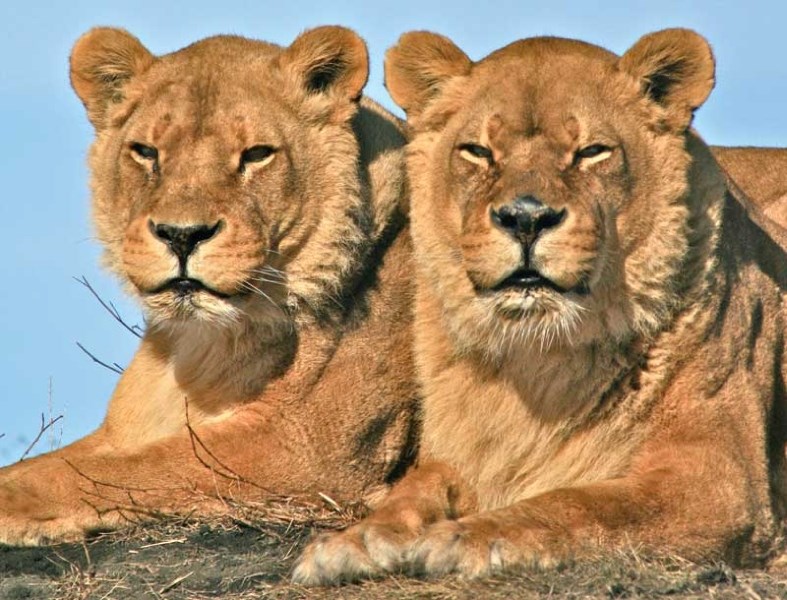Discovery Wildlife Park zookeepers will be looking to fill an empty enclosure after the passing of their two lionesses.
Tawni and Nauschka, had to be put down last week due to health issues associated with old age, said Serena Bos, head zookeeper at Discovery Wildlife.
“Some of their organs were starting to shut down and they had growths that we didn’t know what were but it would have been to much of a risk to put them under to operate,” said Bos.
The lionesses would have been 21-years-old on July 31, and with the average lifespan of a lion being 15-20 years, they were naturally coming to the end of their life cycle.
“We had been watching them for a while now through the cold and right up until the start of January they had a really good quality of life,” said Bos.
But recently the zookeepers knew from monitoring the animals that it was just their time.
The lionesses were put down by the recommendation of one of the zoo veterinarians, who said there was nothing more that could be done for the animals, said Bos.
The lionesses lost their lifetime mate, a male lion named Dusty about three years ago. Because lions are pride animals the lionesses went through a lengthy grieving period for their mate, which is why zookeepers were hoping to be able to put the lionesses down together.
The two sisters had been together for so long, it would have been hard on them if only one was left behind and they were both in the same stages of their life, said Bos.
The zoo had received the lionesses at a slightly older age then the other large cats and had not had the chance to do as much work with them, but Bos still described the lionesses as having very gentle personalities and were animals who would both come right up to the fence so you could touch them.
This will be the 22nd year the zoo has been in operation and many of the animals that have been there for most of their lives are unfortunately becoming geriatric, said Bos.
The lions came to Discovery Wildlife Park in 1995 from Walk in the Wild Zoo in Spokane, Washington, when Walk in the Wild was closing down.
Bos said they are unsure of what they will be putting in the empty exhibit but will know better in the spring if there are any young cats or animals that might need a new home or have been orphaned.
Their presence of the large cats will be missed and one the most noticeable traits that will be missed is their roar.
“The sounds that they make, the calls that they do is so amazing, it is more then a roar but a feeling that seems to go right through you,” said Bos.
“They will be terribly, terribly missed.”
"The sounds that they make, the calls that they do is so amazing, it is more then a roar but a feeling that seems to go right through you. They will be terribly, terribly missed."
Serena Bos
head zookeeper at Discovery Wildlife



